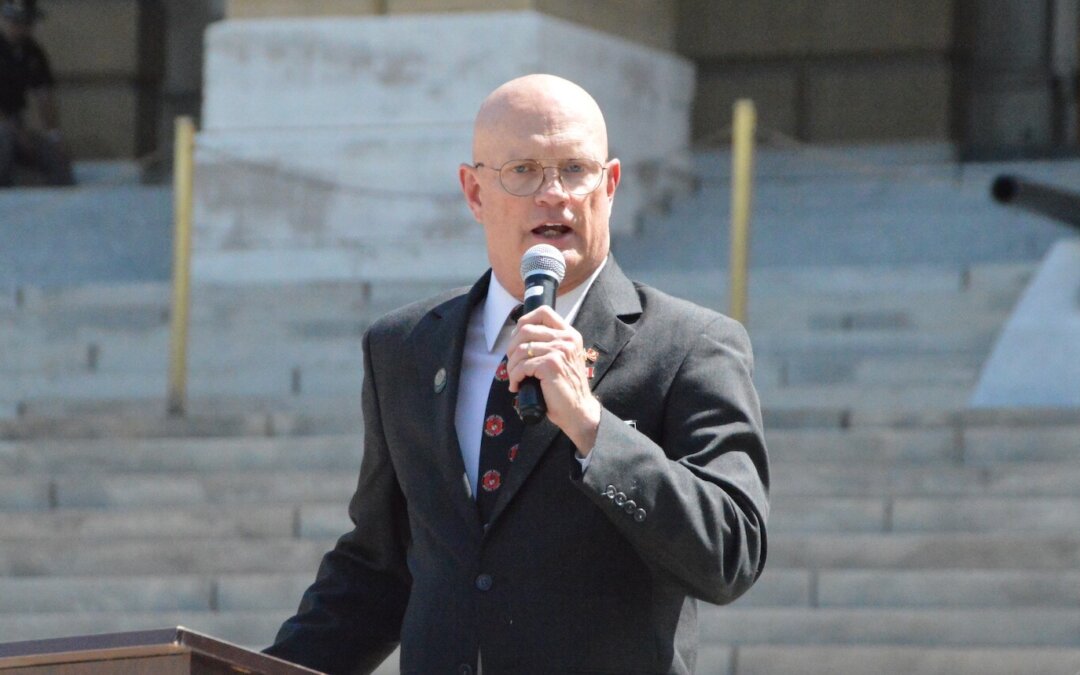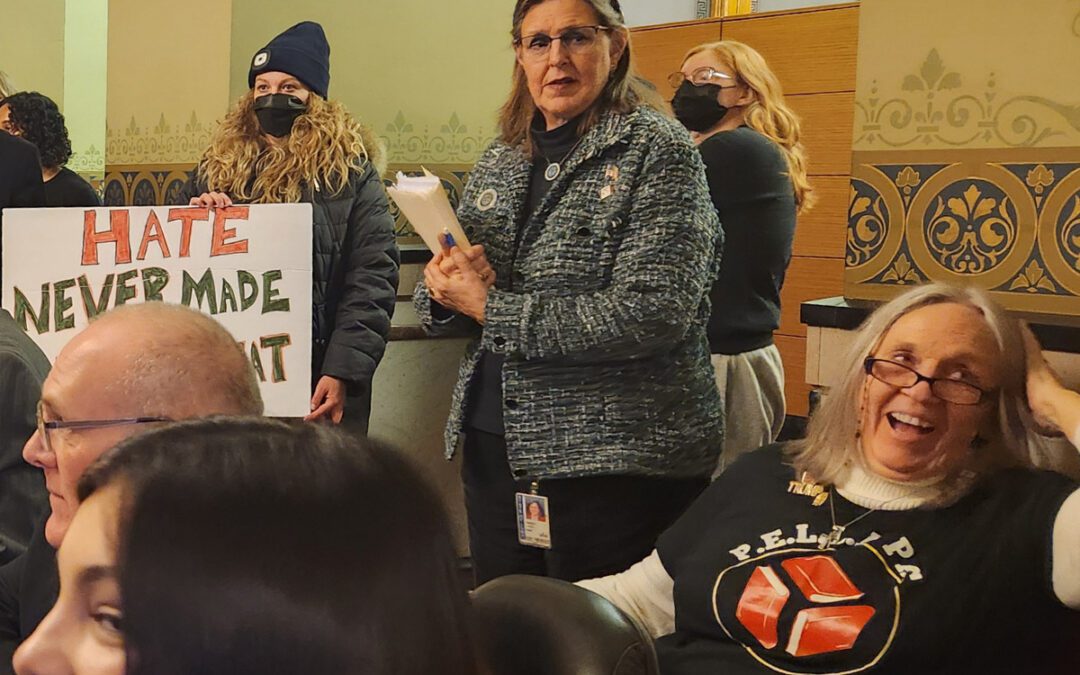
For decades, birth control has been a cornerstone of freedom. And that freedom doesn’t only apply to straight, cisgender women.
Max Mowitz, a gender-affirming care doula who is also training to be a birth and postpartum doula, said birth control does a number of things for LGBTQ+ populations in addition to preventing pregnancy.
Dysphoria is one example: If a client has a period, and would like to get rid of it because it makes them feel uncomfortable about their gender, they talk about goals for mitigating that, Mowitz said.
“Pretty often, I’m working with folks who are very interested in something like testosterone, because they would like to have a lower vocal range or more facial hair,” he said. “And often, if you use testosterone, you might see that your periods will go away.”
But that doesn’t happen for everyone, and some people don’t want all of the effects of testosterone.
Most of the common forms of birth control, from pills to intra-uterine devices (IUDs) to injections, can stop or significantly lighten periods. Mowitz talks about them all.
“There’s a couple levers to push there,” he said. “I typically follow people where they want to go.”
Misinformation
One of the biggest challenges when talking about birth control, according to Mowitz, is combating misinformation about the effects. That’s true for everyone, and includes common misinformation about birth control having health risks and a long-term, negative impact on fertility.
Those in the transgender and nonbinary community, particularly those who are on hormone replacement therapy (HRT), may think incorrectly that HRT alone will prevent pregnancy.
But, people who take estrogen and progesterone can still get someone pregnant, and people who take testosterone could still get pregnant themselves.
“There’s a lot of misinformation and misunderstanding around the need for birth control in tandem with hormone replacement therapy,” Mowitz said.
Long-lasting options like IUDs require no maintenance once administered and they’re very effective—two reasons why they’re popular. Having the IUD inserted can be uncomfortable, though, especially for trans and nonbinary people. In those cases, oral or injectable birth control might be more effective.
That’s why Mowitz said it’s so important for health care providers to make their spaces welcoming and inclusive for LGBTQ+ patients.
“A lot of trans and non-binary individuals, specifically folks that were assigned female at birth, find that it is challenging to find information about birth control or to go access birth control in a space that feels safe to them,” Mowitz said.
Better care
Amy Bingaman, an OB-GYN at Broadlawns in Des Moines, said the first most important part of offering care to LGBTQ+ patients is to make a conscious effort to offer a non-judgmental, welcoming space.
That means using the right pronouns and the right name from the front desk to the exam room, even if it isn’t on official paperwork.
“Once you make it a safe space, take judgment out of the picture, then I think patients are going to get the best care that they can receive because they’re going to be comfortable being honest with you,” Bingaman said.
Bingaman—one of One Iowa’s LGBTQ-inclusive providers—said she’s learned to not make assumptions about what a person might want, based on their appearance or their sexuality.
The biggest barrier she’s run into when talking about birth control with trans and nonbinary people is wariness of taking hormones they’re trying to suppress. For those patients, Bingaman explains the amount of estrogen in birth control shouldn’t make a difference for patients who are on testosterone, but she can also offer progestin-only regimens.
“The bottom line is, patients have to be comfortable—whether they’re cis, trans, non-binary—with whatever medication you’re going to introduce for them,” Bingaman said, adding she tries to build a relationship of communication and comfort.
Bingaman also said the health care field is learning how to do better by LGBTQ+ populations—from individual physicians to administrators. There are more classes about treating trans and nonbinary patients, and medical schools are increasingly teaching LGBTQ+ health care.
Bingaman said patients should never accept physicians saying they can’t do something simply because they weren’t trained for it.
“I wasn’t trained on LGBTQ care in my medical school, or my residency program, because it just wasn’t being taught,” she said. “I had to go to conferences, I had to read, I had to learn. But that’s what medicine is like. We never stop learning.”
Mowitz said it’s important for providers to get trained—and to stay in Iowa.
“There’s so many different things to talk through, and I think it’s individualized care that can really help bridge those gaps,” he said.
Bingaman’s advice for finding LGBTQ+-inclusive providers includes:
- Look up LGBTQ+-friendly providers online.
- Remember you can end an appointment if you don’t feel comfortable, and you don’t have to go back.
- Keep trying.
“There are good providers out there who want to take good care of our LGBTQ patients and provide the same stellar care that everybody else gets and everybody should get,” she said.
Support Our Cause
Thank you for taking the time to read our work. Before you go, we hope you'll consider supporting our values-driven journalism, which has always strived to make clear what's really at stake for Iowans and our future.
Since day one, our goal here at Iowa Starting Line has always been to empower people across the state with fact-based news and information. We believe that when people are armed with knowledge about what's happening in their local, state, and federal governments—including who is working on their behalf and who is actively trying to block efforts aimed at improving the daily lives of Iowan families—they will be inspired to become civically engaged.


Iowa House Republicans renew effort to strip transgender protections from Iowa civil rights law
House Republicans want to remove Iowa’s discrimination protections for transgender Iowans. The bill is a long list touching on bathrooms, birth...

Iowa Republicans advance law that could expose drag performances to obscenity lawsuits
Republicans are pushing to open obscenity laws in hopes of making it easier to sue drag performers. Senate File 116, a bill that follows long-time...

Students: ISU LGBTQ Center turned into ‘generic study lab’ by IA Republicans’ DEI law
Iowa Republicans' decision to restrict DEI programs means the loss of one university's LGBTQ+ center, where students have found friendship and...

Attack on LGBTQ+ student group enabled by Iowa’s anti-LGBTQ+ bills
Linn-Mar's LGBTQ+ student group was attacked at the school's homecoming parade. Here's why the Iowa Legislature is on the hook. What do you remember...

Iowa AG defends other states discriminating against trans athletes
Iowa Attorney General Brenna Bird has now joined a group of states to defend laws discriminating against transgender athletes in Idaho and West...

Here’s why Iowa students won’t have new Title IX protections
Iowa students, including transgender and nonbinary children, will not enjoy new federal Title IX protections at school because Iowa Attorney General...





